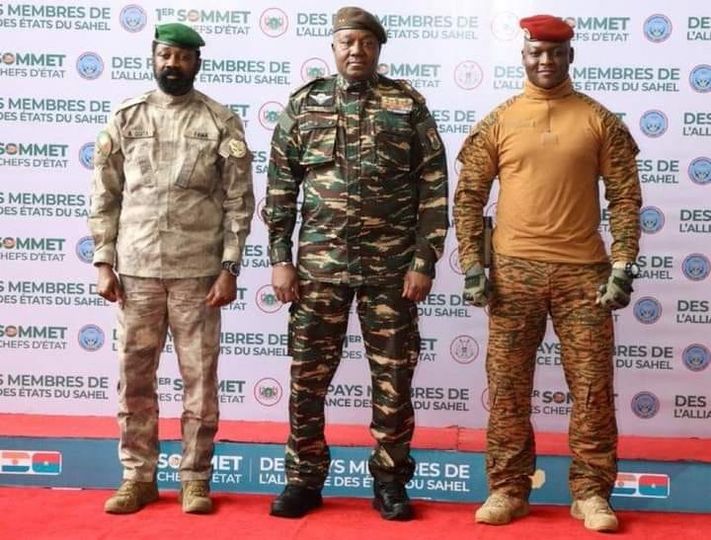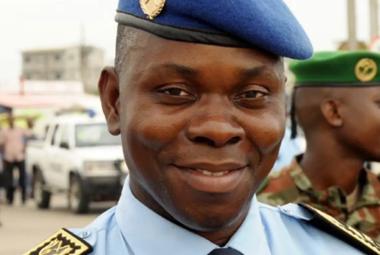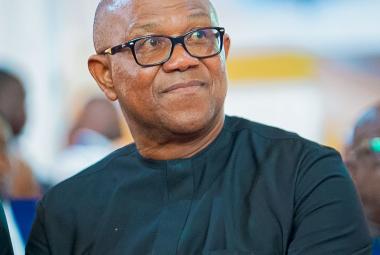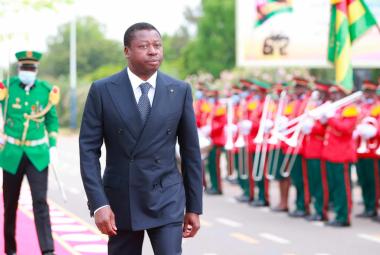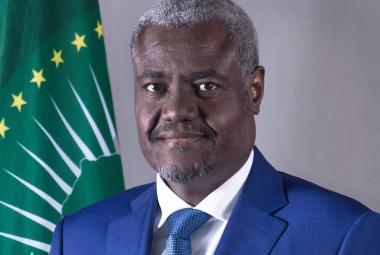One cannot throw himself into the river and then fear the cold. As soon as the signing of the constitutive act of the Confederation of Sahel States (AES) arose a controversy over the imposition of visas on its nationals in the area of the Economic Community of West African States (ECOWAS) grew, before being denied.
This concern should not be justified if all the parameters had been lifted before this distancing option. A situation which remains expressive, when analyzing the perspectives, for those States which maintain having made an “irrevocable” option.
The two possibilities available to the AES countries, following their posture since the signing, in September 2023, of the military mutual assistance charter, known as Liptako Gourma, and the joint announcement of the departure of ECOWAS, end of January 2024, are previously known to the organization which still maintains its door open.
Community area of a common market of more than 400 million inhabitants, where populations benefit from freedom of movement of people and goods, with some bottlenecks in places subject to controls and regulations, ECOWAS seems one of the most advanced organizations in the sub-region.
If indeed within this space there are inter-State organizations such as the West African Economic and Monetary Union (UEMOA) which brings together eight coastal and Sahelian States, Benin, Burkina Faso, Ivory Coast, Guinea-Bissau, Mali, Niger, Senegal and Togo or the Council of the Understanding composed of Burkina Faso, Ivory Coast, Niger and Togo; these organizations have not signed their departure from ECOWAS which today is by far the most representative bringing together the most countries in the sub-region and structurally the most accomplished and credible among technical and financial partners from various horizons, with a diversity of programs. Some of these organizations from the constituent countries of ECOWAS have directly transferred their achievements within the organization, even to the point of appearing more or less transparent.
What about the consequences of leaving ECOWAS?
The day after the first summit of the Alliance of Sahel States (AES) which led to the creation of a Confederation of Burkina, Mali and Niger, held on Saturday July 6, 2024, the 65th summit of the Economic Community of West African States (ECOWAS) on July 7, in Abuja, Nigeria.
The conclusions of the Niamey summit did not go unnoticed in Lagos, and vice versa.
It is obvious that disintegration within ECOWAS will not only disrupt the freedom of movement and establishment of people, businesses or others, but will also worsen insecurity in the region.
The three AES countries represent 54.4% of the ECOWAS area; i.e. more than half of its geographical coverage. And the populations of Mali, Burkina Faso and Niger represent 17% of the total population of ECOWAS countries, or 75 million potential consumers.
These three countries make up 7% of the community's collective GDP, which is valued at $74 millions.
Their exit from ECOWAS, unless previously agreed, will undoubtedly result in customs duties which will apply to these countries to bring their goods into the member countries of the economic community.
A situation which according to economic analysts risks having impacts on the cost of living in these countries as well as on companies from these countries operating in ECOWAS countries; but also to attract new investors.
Assets ?
Following pressure from the Economic Community of West African States (ECOWAS) after the coups which led to military juntas; On January 28, 2024, Niger, Mali and Burkina Faso announced their withdrawal from the regional organization with “immediate effect”, after creating the Alliance of Sahel States (AES). This, on the grounds of sanctions deemed “unjust”.
Despite their status as hinterland countries, the AES countries have relations of interdependence with other ECOWAS countries, particularly coastal ones. They are important suppliers of animal products to these countries. From a cultural and human point of view, the AES countries and those of ECOWAS are too closely linked for them to isolate themselves. The transhumance corridors for their livestock and sales destinations, like those of other products such as Niger onions, are towards coastal countries. Added to this are family and economic ties.
However, although countries like Morocco are positioning themselves to serve them, port goods transport services will become more complex for the AES countries which are landlocked. Because for the moment, they cannot evacuate their production to the North by crossing the Algerian desert. Although bilateral agreements with Morocco and Mauritania are being considered to bring production out of the Sahelian countries, the ECOWAS countries are more integrated than it seems.
Apart from official data, customs statistics do not take into account informal trade, which remains very important.
Also, it will be necessary to supply energy to Niger via Nigeria, evacuate uranium and oil from Niger through Benin Republic although this option is increasingly subject to alternative outcomes while waiting to find a conciliation, or even send electricity from Ivory Coast to Mali.
A context which suggests either bilateral agreements, or a compromise with ECOWAS, or a special regime as highlighted by the Franco-Beninese economist Lionel Zinsou.
Well-founded accusations?
Accused of having remained inactive in the face of the situation their country is experiencing, insecurity linked to terrorism in particular, while it is working to take sanctions against them, at the Extraordinary Summit of the Conference of Heads of State and ECOWAS Government on the political situation, peace and security in the region, in February 2024 in Abuja, Nigeria, the organization listed its actions in favor of the AES countries.
As part of regional cooperation for the fight against terrorism, violent extremism and organized crime, the three AES countries benefited from an envelope of 100 millions United States dollars, mobilized by UEMOA under the ECOWAS Action Plan against terrorism. Also, other amounts have been allocated to these countries and amount to $7.5 millions for the acquisition of equipment intended to help them fight terrorism.
The withdrawal of these three countries will impact security cooperation, intelligence sharing and participation in regional counter-terrorism initiatives, including the Accra Initiative and the activities of the Multinational Joint Task Force. recalled ECOWAS.
What about community development and humanitarian aid?
The three AES countries benefit from several regional projects and programs, notably from ECOWAS:
The Regional Food Security Reserve. In this component, the three countries host, as part of the regional reserve, stocks of nearly 17,000 tonnes, or 52% of the regional stock;
The Regional Support Program for Pastoralism in the Sahel (PRAPS) financed by the World Bank, amounting to US$215 million for the three Member States;
The Regional Support Project for the Sahel Irrigation Initiative (PARIIS) financed by the World Bank, amounting to US$103.43 million for the three member states;
The Regional Food Systems Resilience Support Program (PRSA) funded by the World Bank, amounting to US$230 million for the three Member States;
The West Africa Single Identity Project for Regional Integration and Inclusion (WURI).
The ECOWAS regional electricity market project which is a West African Electric Power Trading System, and which connects all member states to a regional electricity network, in order to improve access to electricity , also involves the three AES member states. ECOWAS projects and programs, which have a value of more than 500 million US dollars.
Two regional financial institutions, EBID and BOAD, also have considerable commitments in the three AES countries.
The EBID currently has 27 public sector projects underway in the three countries (Burkina Faso 9, Mali 8, and Niger 10) and a total of 20 private sector projects (Burkina Faso 5, Mali 13, and Niger 2), according to ECOWAS data. These projects are collectively valued at approximately 321,634,253 US dollars, of which those in the public sector represent 38.1% and those in the private sector, 61.9%. The Bank's portfolio in the three countries represents approximately 22.5% of its total portfolio in the 15 member states. The three countries contributed to the capital of the Bank for a total amount of 33,135,445.38 US dollars, distributed as follows: Burkina Faso 13 million dollars, Mali 9.5 million dollars and Niger 10.5 million dollars .
Any prospects?
If it is obvious that the AES countries accuse ECOWAS of being a sounding board for certain powers, they also do not fail to forge other partnerships with certain countries such as Russia, China, Iran and Turkey...
Far from institutional divisions and discourses, certain elements of analysis allow ECOWAS and the AES country to assess the decisions that they could be led to take and which will have a lasting impact on their respective populations.
A crisis within the community space would benefit neither one nor the other unduly. However, it can constitute a trigger for the revitalization of the sub-regional institution, many of which agree to read signs of running out of steam on certain aspects, particularly political ones, with desires to drag on in power, poor governance and other scourges.
Distancing oneself from one another would actually benefit less the people, as well as the States, than the thieves on the lookout. “A cockroach cannot enter a wall unless it is cracked.”
By Ange Banouwin
*This article has been translated from French into English by Marcus Boni Teiga
Source : https://beninwebtv.com
Bénin Web TV (BENIN)



